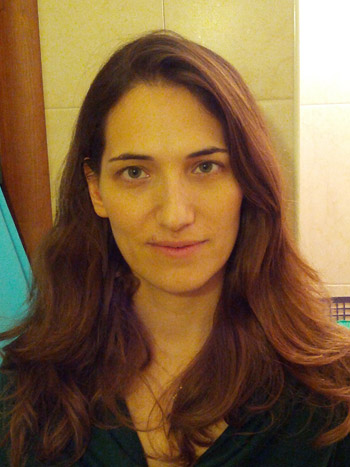| Previous issues | Subscribe |
| SPOTLIGHTS |
|---|
| GRADUATES |
|---|
|
|
|
|
|
|
| INNOVATION, RESEARCH & TECHNOLOGY |
|---|
|
|
|
|
|
|
|
|
| ACCESS |
|---|
| EVENTS |
|---|
| HIGHLIGHTS & MILESTONES |
|---|
|
|
|
|
|
|
|
|
|
|
|
|
|
|
|
|
|
Co-editors: Elissa Allerhand, Ilene Bloch-Levy Photographer: Gideon Markowitz Graphic Designer: Laura Grinberg Web Manager: Batsheva Engelberg-Behr Web Master: Sonia Pechersky, Royi Gumprich |
| INNOVATION, RESEARCH & TECHNOLOGY |
|---|
Caregivers, Caregiving and Emotional Intelligence
Emotional intelligence is psychology's young child, attracting an avalanche of opinions. Emotional intelligence, or its general concept, has been touted about as early as 1930, albeit under different names: social intelligence, multiple intelligences, emotional quotient, etc. But, two publications catapulted EI to center stage in the last few decades, not only in the field of psychology, but also in the world of business and education. The first was the landmark 1990 article, "Emotional Intelligence" by psychologists Peter Salovey and John D. Mayer which was published in the journal Imagination, Cognition and Personality. The second was the publication of New York Times science writer and psychologist, Daniel Goleman, in his popular book published five years later, entitled: Emotional Intelligence: Why It Can Matter More Than IQ. With these publications, interest in EI soared. Google emotional intelligence and you'll come up with more than 52,000,000 hits. With so much interest in the subject, one would think that there was little left to explore. But that's not the case. Ask Dr. Dafna Hadar-Pecker, a new member of the Open University of Israel faculty in the Department of Psychology and Education. She is also the newly appointed coordinator of Emotional Intelligence courses at the OUl. The Open University is but one of a handful of higher education institutions in Israel offering courses on EI. Dr. Dorit Olnick-Shemesh and Prof. Moshe Zeidner developed the course. Dr. Hadar-Pecker was involved in a multi-year research project with trauma patients. While most researchers in the past have focused on studying the patients, Dr. Hadar-Pecker researched how EI impacts on the caregivers and their ability to treat their patients. The scope of her study also went beyond the caregivers, and encompassed larger circles of individuals involved, such as family members, friends and tangential staff. As much as Emotional Intelligence is studied and discussed, so are the number of definitions. According to Dr. Hadar-Pecker. "The definition that is most generally accepted is the following: EI is cognitive intelligence that enables one to deal with emotional issues, including the ability of an individual to feel something alongside his ability to be able to parse that feeling." Dr. Hadar-Pecker's research examined these parameters with caregivers who treat patients who have experienced trauma. The overarching question was just how important is EI in dealing with these situations? Does secondary exposure (i.e. through the patient) to trauma, impact on the caregiver? And, if so how does it affect his professional and private life? A group of 200 psychologists, social workers and doctors participated in the study. This study managed to reach the very heart of the professional's soul, and as a result, provided illuminating knowledge into how EI enables professional caregivers to achieve a higher level of understanding, and consequently offer a better degree of care.
Page: 1 2
|
